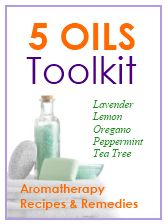If you look carefully, you will find that more and more of today's skin and hair care products are made using essential
oils. As a result, people using these types of products are benefiting in several ways. Not only are they giving themselves top-notch skin care and hair care,
they're also reaping the benefits of aromatherapy...not in some alternative lifestyle setting, but in the "real" world.
When using the essential oils that are such a big part of aromatherapy, it's important to understand a bit about YOUR skin and hair type. Each plant's essential oils can provide a number of different therapeutic benefits so knowing about your skin and hair in advance will help you match up your personal needs with the appropriate ingredients.
MOISTURIZING
Moisturizing your skin is as easy as adding the most suitable carrier oil into an essential oil that's appropriate for your skin type and then
massaging the combined treatment into your skin.
SENSITIVE SKIN AND ALLERGIES
Aromatherapy skin and hair
care products can potentially cause problems for people
who have sensitive skin or allergies. If you have a bad reaction to a
product, whether it's a store-bought national product or a homemade
one, discontinue use. If, at first,
you're unsure how you will react to a new essential oil, test it on a
small area of skin first for a few days and see what happens.
YOU MAY NEED HELP
If the problem you're
trying to alleviate isn't going away, the products may not be working. If necessary, consult with a specialist
for advice on how to proceed. There are experts in aromatherapy and
there are health care experts. Don't self-diagnose. While most
aromatherapy products and applications are pretty safe, get expert
advice if you don't know what you are doing or what's going on.
Which aromatherapy ingredients can you use for skin or hair care and how do you use them?
If you have normal skin, try using rose, lavender
or chamomile essential oils.
Chamomile also works well
on dry or sensitive skin and skin that is
prone to acne or eczema. To use any of these oils, add several drops
into your favorite fragrance-free face mask and use as directed. Or add
right into your bath water.
Tee tree and cajeput oils also can help with acne.
A good carrier oil
to mix with these essential oils is grapeseed. You can also mix several
drops with rose water to create a toner.
Sandalwood oil is effective at reducing some visible signs of aging
such as wrinkles and dry skin. Rose oils, frankincense, neroli and
geranium oils are also effective in treating mature skin.
Palmarosa oils are commonly used in both skin and hair care products.
These oils have moisturizing and hydrating qualities and they stimulate
cell regeneration.
Used neat, i.e. undiluted, or combined with carrier oil, the essential
oils mentioned
above can be massaged into skin or added to bath water.
Besides mixing
essential oils into carrier oils, you can also mix them into creams and
lotions containing lanolin as long as these products don't contain a
fragrance. Then just gently massage
the product into the skin.
When excess exposure to the sun is a problem, you can massage affected
areas
with lavender or chamomile oils blended with carrier oil.
HAIR RINSE RECIPE
A good final rinse for hair is a mixture of apple cider vinegar, lemon essential oil and water.
In a container, mix 4 teaspoons water, 2
teaspoons vinegar and 3 drops lemon oil. Massage into hair and rinse well.
HOT OIL HAIR TREATMENT RECIPE
One-half cup dry rosemary
leaves mixed with 1/2 cup olive oil makes a
good hot oil treatment for hair. Mix ingredients in a pan and heat.
Strain. Coat hair with mixture then wrap in plastic for 20 minutes.
Wash thoroughly.
How to make over 130 natural home remedies & aromatherapy recipes using only 5 essential oils.
|

|
Benefits of Aromatherapy


